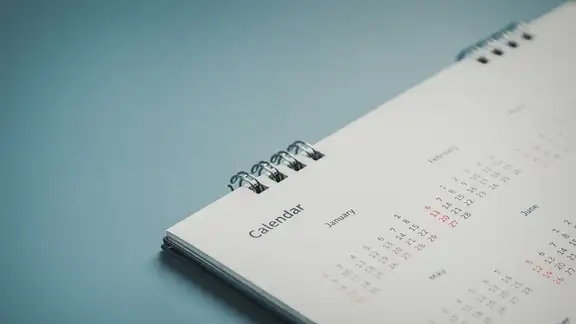New to Canada? Here’s what you need to know about filing your income taxes.
February 17, 2024

If you're new to Canada, understanding our income tax system can be difficult. In fact, many countries do income tax reporting differently from Canada or not at all, so experiencing it for the first time can be daunting – especially if you’re unsure of which credits and deductions to claim.
That said, there are so many benefits to filing taxes, and newcomers qualify for the same tax credits and deductions as those who were born Canadian citizens. Additionally, with the help of H&R Block Tax Experts, we'll help simplify the tax filing process in Canada.
For starters, it’s important to know that in Canada, the tax year runs the same timeline as the calendar year: from January until December. Then you have until the following April to file your income tax return.
- So, to report income from 2023, you’ll save your receipts throughout the year.
- In February of 2024, you’ll collect documentation and forms from your employer, your bank, or others.
- You’ll then have between February to the tax deadline (Tuesday, April 30th, 2024) to file your income tax return.
It’s always best to file early so you’re not scrambling to do so before the deadline, and so you can get your tax return earlier. This page has even more information about the basics.
What documentation do you need to file your taxes?
There are many slips, receipts, and documents you might need for your tax filing. We’ve compiled a handy checklist to help you identify the documents that apply to your situation.
Important things to know for newcomers.
Upon arrival.
Firstly, your most important step is to get your Social Insurance Number (SIN) from Service Canada or get an individual Tax Number from the Canada Revenue Agency (CRA). This is required to get a job and to collect any benefits or credits you’re entitled to.
Credits and Benefits.
There are many tax credits and benefits available to Canadians. Here’s what you need to know about credits and benefits.
- Credits: Tax credits are incentives offered by provincial and federal governments that reduce the amount of tax you owe.
- There are two types of credits:
- Refundable, meaning you’ll get money back in your pocket. Some examples include:
- GST/HST credit
- Childcare credits
- Canada Carbon Rebate (formerly known as the climate action incentive payment)
- Non-refundable, meaning they go towards helping you pay any taxes you may owe. Some examples include:
- The basic personal amount
- Charitable donations
- Medical expenses
- The home buyer’s amount
- Refundable, meaning you’ll get money back in your pocket. Some examples include:
- There are two types of credits:
Of course, you can consult an H&R Block Tax Expert to help you navigate and understand tax credits.
Setting roots in Canada.
Newcomers may be able to claim the First-Time Home Buyer’s Tax Credit on their first home in Canada. It’s a tax credit for up to $10,000 which equates to a $1,500 refund that can help to offset costs of moving to a new country. You may not be eligible for this amount if you owned a home in the previous 5 years, regardless of whether it was in Canada or not, so it’s important to consult with an expert who can help you determine if you qualify.
Newcomers with children.
New residents who have children under eighteen may qualify to receive the Canada Child Benefit (CCB). This is a tax-free monthly payment for families to help them offset the cost of raising children (and starting a new life in Canada). The payment varies based on the age of the child and the overall income of the family.
International students.
There are some instances where a student might be considered a resident of Canada. Firstly, we have this thing where if you live in Canada for more than 183 days in a year, you could be considered a resident, too.
Students who have shown they have “significant residential ties” to Canada (things like owning a home, having children, even having a driver’s license or owning a car), in the eyes of the federal government, are considered residents of Canada. This means that like other fellow Canadian residents, they’d be eligible for GST/HST credits, tuition credits, and other provincial credits or tuition rebates!
If you don’t have “significant residential ties,” and you don’t stay longer than 183 days, you’d be considered a non-resident, so you wouldn’t be eligible for credits and benefits. However, if you earned income in Canada during that time, you should file an income tax return to ensure you don’t pay more taxes than you owe.
Keep in mind, research grants are taxable income, and you can deduct your expenses when you report this amount on your income tax return (such as the cost of travel, lodging, and meals when you’re conducting research away from home).
Dental Benefit
Recently, the government released details for their extensive Canadian Dental Care Plan, which will extend dental benefits to all Canadians who don’t have access to dental insurance, and who meet certain income criteria. Those who qualify will be able to get coverage between 40-100% of the cost of services like:
- Cleaning, polishing, sealants, fluoride
- X-rays
- Fillings
- Root canals
- Dentures
- Oral surgery
Those eligible need to be a resident of Canada, have an adjusted family net income of between $70,000-$90,000 and must have filed a tax return for the previous year to confirm income.
For newcomers who only arrived in Canada in 2023, they'll need to have their statement of world income for 2022.
Applications for this will start to roll out in phases starting from now to May 2024, with seniors. Then in May 2024 it will open to disabled persons and children under 18. It will open to everyone else in 2025, and dates are still pending. This is another great reason to ensure you file a Canadian tax return every year, as dental health extends significantly into many other aspects of health and prosperity. You can consult an H&R Block Tax Expert on how to apply for this new benefit.
If you have a home outside of Canada
In Canada, residents must report all income they earned from anywhere in the world when filing their taxes. However, income from another country may be exempt from Canadian tax or subject to special tax treatment if Canada has a tax treaty with the country in which they earned income. Canada currently has tax treaties with nearly 100 different countries.
Claiming your GST/HST Credit
The credit arrives quarterly, and you should receive your payments during the first two weeks of April, July, October and January. Similarly, many provinces have quarterly payments to offset carbon taxes people pay at the gas pump or on their home heating bill. You can learn more about that here.
Key Dates
We’ve compiled all the most important tax dates and deadlines to ensure you’re prepared for tax season and can file on time!
January
- Check on your CRA My Account or create one if you don’t already have one. This way, you have lots of time to ensure your information is up to date in the system. It takes a few days to get your account verification code, so this gives you plenty of time before the busy tax season really kicks off.
February
- The Canada Revenue Agency (CRA) and Revenue Québec will open NETFILE and ReFILE services for tax year 2023 near the mid-end of February. This means, you’ll be able to file your tax return online starting mid-end of February.
- You likely won’t receive your T-slips from your employer or from other income right at this time, but you’ll receive them shortly after!
March
- The RRSP contribution deadline is February 29, 2024. If you filed a tax return last year, and contributed to an RRSP last year, check your 2023 Notice of Assessment to determine if you have additional room in your RRSP to make any last-minute contributions to your RRSP.
- March is a great time to file your taxes so you can get your refund as quickly as possible or have time to make a game-plan on how you’ll pay back any taxes owed.
April
- April 30, 2024, is the day that taxes are due, and any taxes owing balance is due. You don’t need to wait until this day to file your taxes, of course. In fact, it’s recommended to file as early as possible so you won’t be rushed and can get your refund sooner!
June
- June 17, 2024 is the tax filing deadline for those self-employed, such as those who drive or make deliveries for Uber or Lyft.
- It’s important to remember that any taxes owing are due on April 30th, if you think you’ll owe taxes, you shouldn’t wait until June to file.
Want to learn more about filing income taxes in Canada? Consult an H&R Block Tax Expert. Find an office near you to book an appointment today.



